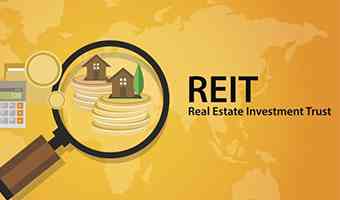
THE real estate sector has long been regarded as a bellwether of the economy, demonstrating remarkable resilience in economic downturns.
As a tangible representation of wealth and prosperity, the value of land and property has been tied to the fortunes of nations for centuries.
When the economy thrives, property values soar, and construction cranes pierce the sky.
Even in times of economic faltering, the real estate market, while affected, remains a strong pillar, bouncing back and recovering.
The real estate sector significantly contributes to the economy's health, and the two are deeply intertwined. One's performance has a ripple effect on the other, making their relationship crucial to understanding the overall economic landscape.
Real estate development and investment profoundly impact economic growth, job creation, and household wealth.
On one hand, real estate is a crucial driver of economic growth. The construction and sale of properties create jobs, stimulate local economies, and generate tax revenue for governments.
The real estate industry accounts for a significant proportion of many countries' gross domestic product (GDP). Real estate constitutes a substantial proportion of household wealth, underpinning financial stability and prosperity for individuals and families.
- Zim property sector depressed
- Hwange unveils multi-million dollar projects
- PPPs essential to addressing infrastructural deficits
- ZSE Vat demand spooks REITs
Keep Reading
Appreciating property values is a principal mechanism for augmenting wealth and fostering economic resilience and affluence.
Commercial real estate is the bedrock for business operations, encompassing diverse asset classes such as office buildings, retail outlets, and industrial facilities.
Adequate commercial space provision is paramount in fostering entrepreneurship, facilitating trade, and augmenting economic productivity.
The bustling commercial districts in significant cities epitomise the vibrancy and dynamism induced by robust real estate ecosystems, catalysing economic growth and urban renewal.
Industrial real estate clusters engender synergistic collaborations among complementary industries, fostering economies of scale and innovation diffusion.
Strategic developments such as industrial parks and logistics hubs bolster supply chain efficiencies, propelling regional development and enhancing global competitiveness.
The emergence of technology hubs across Africa exemplifies the transformative potential of industrial clusters, heralding a new era of innovation-driven economic growth.
However, the economy profoundly impacts the real estate market. Economic indicators such as interest rates, inflation, and unemployment influence demand and affordability.
For instance, low interest rates make borrowing money to purchase or invest in real estate more attractive, while high unemployment rates can lead to decreased demand and lower property values.
Despite its resilience, the real estate sector faces challenges. Affordability and accessibility remain significant concerns, particularly in urban areas where housing prices have skyrocketed.
The real estate sector is also vulnerable to economic downturns, leading to reduced demand, lower property values, and decreased investment.
The provision of housing, a fundamental human need, constitutes a cornerstone of real estate's societal contribution. The sector is pivotal in ameliorating housing deficits and enhancing living standards, fostering social welfare and inclusivity.
Initiatives geared towards affordable housing resonate profoundly, aiming to alleviate housing shortages and address the needs of marginalised populations. Accessible mortgage finance mechanisms facilitate homeownership aspirations, enabling individuals to acquire property through manageable instalment payments.
Sustainability and environmental considerations are increasingly influencing real estate development and investment.
As concern about climate change and ecological degradation grows, buildings and properties incorporating green technologies and sustainable practices become more attractive to investors and tenants alike.
Collaborative endeavours between governments and private developers herald a new era of infrastructure development marked by innovation and efficiency.
Public-private partnerships (PPPs) leverage private sector expertise and financing to deliver transformative infrastructure projects, addressing public deficits and spurring economic development.
The successful execution of PPPs in diverse sectors, from transportation to energy, underscores their efficacy in driving sustainable growth and fostering public welfare.
Real estate investment trusts (REITs) emerge as vehicles for democratising access to real estate investments, offering investors diversified portfolios and regular income streams.
REITs enhance liquidity in real estate markets, attracting institutional capital and stimulating investment flows.
The proliferation of REITs across emerging markets underscores their role as catalysts for financial inclusion and economic development, unlocking latent opportunities for wealth creation and capital formation.
In conclusion, the relationship between real estate and the economy is complex and multifaceted.
As the global economy continues to evolve, it is essential to understand the interplay between these two sectors.
By recognising the opportunities and challenges present in the real estate market, investors, policymakers, and individuals can make informed decisions that promote economic growth, sustainability, and prosperity for all.
- Juru is the chief executive officer at Integrated Properties.






